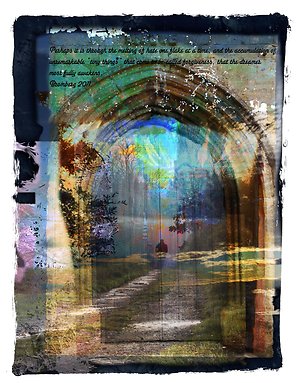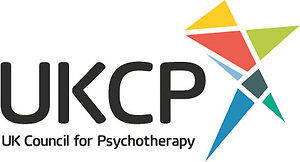Welcome to David Tidsall Counselling and Psychotherapy in Buckinghamshire
Please Note that I am not taking on any new clients or supervisees
Some of these may include:
- Addressing negative beliefs
- Working through creative blocks
- Releasing and embracing creative potential
- Resolving traumas, both recent and historic
- Anger, stress and crisis management
- Understanding and resolving anxiety and panic attacks
- Developing a resilient sense of self
- Coming to terms with bereavement and loss
- Resolving relationship problems at home, work and socially
- Understanding and treating shame
- Finding healthy ways out of depression
- Understanding and changing addictive behaviour
- Promoting and supporting life style change and self development
- Finding the balance between belonging and individuality
- Exploring and integrating difference and diversity
Having reached my website, you are probably looking for some help to resolve a problem, or to make deeper changes in how you see yourself, the quality of your life or how you relate to others. Sometimes this may be a feeling that things are "not quite right", that "something is missing" or you are living in a way that no longer works for you. For some people this can manifest as frustration or a sense of being blocked. You have ideas and ambitions but somehow stop yourself moving in the direction you would like.
Do you think that your reactions to events are self limiting, that you are not enjoying your relationships or have difficulty managing relationships in one or more areas of your life such as home or work? Alternatively, you may recognise some of the problems listed above. These often involve heightened levels of stress or anxious thoughts and feelings, a sense of threat, or deepening low modes and an experience of being deflated with low energy and negative thinking. If this sounds familiar then please get in touch for an initial meeting using the link on the right side of this page or my contact page.
The consequences of emotional neglect
“…are the experiences of feeling ignored unwanted and uncared for. Being ignored is likely to lead to powerful anxiety because for a very small child it is dangerous to be ignored. Feeling unwanted will almost certainly lead to pervasive and toxic shame…. in adults…it will not be possible to trace these feelings to specific conflicts..”
Kathrin A Stauffer Emotional Neglect and the Adult in Therapy 2021
Emotional neglect and other adverse childhood experiences can lead to many unconscious limiting beliefs which reduce our capacity to function, live creatively and resiliently manage our current life experiences. This may show up in an extensive range of observable behaviour, thoughts and feelings. For example, addictive behaviour, anxious reactions, feeling stuck, giving yourself negative messages about not being creative and noticing the disparity between how we think we should appear and perform, and what we actually feel inside.
A note about Trauma
Events that we experience as traumatic are those that either overwhelm us in their size and/or impact or are an accumulation of events that result in overwhelm and therefore trauma. Such events can be both physical, for example an accident or other physical harm, and psychological, for example a damaging or undermining relationship, or the threat of harm. We are left with a restricted approach to aspects of our lives and may notice that we are more anxious or hyper-vigilant to certain events. These are some of the indicators that we may not have processed the trauma and reset our nervous system back to normal operating level.
My Approach
Deciding to seek help from psychotherapy or counselling can feel like a daunting first step. I understand this and take time to hear what is troubling you and work with you to explore the behavioural patterns, thoughts, feelings and sensations associated with what you are experiencing. From these we can begin to understand the conscious and unconscious messages and beliefs that influence how you live your life.
Much of psychotherapy involves the process of grief. This is often associated with loss or bereavement however, when we look back at our lives and realise that we have held childhood hopes for things to be different. " if only ..." or " when I have ...." "then I will feel happy and be able to...." Coming to terms with these old hopes and let them go, I believe, opens us up to engage with our lives now rather than being hijacked by past longings. This process of acceptance inevitably involves grieving for that which we might need to let go.
The Paradoxical Theory of Change
"...that change occurs when one becomes what he is, not when he tries to become what he is not. Change does not take place through a coercive attempt by the individual or by another person to change him, but it does take place if one takes the time and effort to be what he is...." Arnold Beisser, M.D.
Often what we experience as problems or troubles, result from what has happened to us either earlier in life, recently or both. I think we deal with events and circumstances in the best way we can at the time; we develop a Script for how to go about life. However, sometimes these Script beliefs about ourselves, others and ways of coping, whilst automatic, may no longer be useful for how we want to live now. For example:
A person may be self critical, tending to put themselves down and not able to take praise easily. Earlier in life circumstances may have meant that keeping "hidden" in this way may have been an important survival strategy for their younger self in managing adverse childhood experiences. However unconsciously keeping hidden may result in limiting that person's potential as an adult.
We hold these beliefs outside of our awareness or unconsciously and over time they become deeply embedded, with part of our unconscious systems still believing in the presence of the earlier threat or relational difficulties from early life. As a consequence it can be difficult to make changes by ourselves. " it's like the eye trying to see its self" This is where having a safe place to explore, be supported and, sometimes, challenged by a qualified experienced psychotherapist can help.
I will support you in exploring your beliefs, deciding what changes you want to make and help you find ways to put these into action. For example, this might mean being supported in developing a better relationship with yourself which then enables you to build better relationships with others. This may also include how you will manage your relationships and interactions with others as you as you step out of Script driven ways of relating.
Offering Psychotherapy and Counselling near High Wycombe in Buckinghamshire, I am accessible from many towns in South Buckinghamshire, including Amersham, Marlow, Beaconsfield, Aylesbury, Chesham, Wendover, Princes Risborough, Stokenchurch , Gerrards Cross and the Chalfonts as well as from Thame, Maidenhead, Slough, Farnham Common, Hemel Hempstead and Oxford.
please note:
This includes Counselling, High Wycombe and Psychotherapy either online, by telephone or face to face.
Thank you for visiting, I look forward to hearing from you
Kind regards,
David
Psychotherapist and Counsellor,
High Wycombe,
Buckinghamshire
You can find me on Google under Counsellor or Psychotherapy in High Wycombe, Buckinghamshire or click the links on this page.
Find out more...


